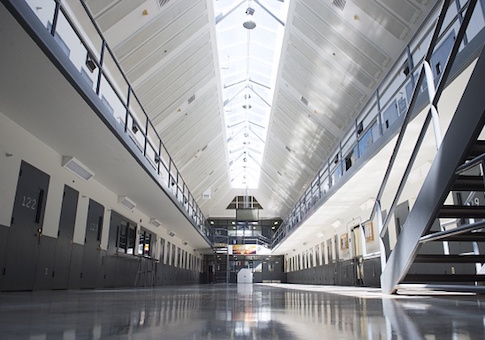While some of the first federal prison reform measures in decades were enacted under President Donald Trump early this year, the White House declared April 2019 as the "Second Chance Month," highlighting several prison reform initiatives.
In Wisconsin, a Republican lawmaker is closer to achieving expungement reform to help former non-violent offenders transition from prison to civilian life, after receiving overwhelming bipartisan support in both legislative chambers.
State Rep. David Steffen, R-Howard, introduced AB 33, the "Pathways to Employment" legislation, which recently passed in committees in both chambers, by votes of 4-1 and 11-1. The bill is waiting to be scheduled for a full vote in each chamber in May, which Steffen’s office said is likely to pass.
Steffen argues the legislation highlights "the need for opportunities for people who have paid their debt to society and want to become contributing citizens." It would connect "employers in need with potential employees who are looking to overcome their past and find success in the workforce."
Expungement involves a person petitioning to have his or her criminal record expunged, or removed from public court records. The law solely pertains to non-violent, lower-level offenders charged with Class H felonies and below, who must meet the eligibility criteria.
Currently, a judge can only order individuals under age 25 eligible for expungement and only at the time of their sentencing. AB 35 allows a judge to order that a record be expunged after individuals complete their sentences, and removes the arbitrary age limit of 25.
"Wisconsin’s expungement law is designed to help one-time, low-level, nonviolent offenders join the workforce," Michael Jahr, senior vice president at the Badger Institute, said. "Expungement is underutilized, however, because eligibility can only be considered at the time of sentencing. This requires judges to guess as to whether the defendant is likely to rehabilitate or reoffend. No other state has such a requirement."
"The current system is illogical," Julie Grace at the institute, argues, "because it prohibits a judge from deciding on expungement after completion of a sentence when an offender’s rehabilitation is more apparent."
According to the institute’s research, current expungement processes highlight geographic, racial and age disparities. Criminal records affect housing, employment, financial aid, and other areas that require background checks.
The bill not only gives individuals a second chance but also addresses the state’s labor shortage, Steffen said.
"Under Wisconsin’s current expungement law, many able-bodied residents are forced to sit on the workforce sidelines," he said. "During a time when nearly every industry in Wisconsin is facing a workforce shortage, AB 33 plays a crucial role in connecting employers in need with this untapped workforce."
"We simply cannot adequately fuel Wisconsin’s booming economy for the long term if we allow this deep pool of human dignity and potential to go untapped," said Sen. Alberta Darling, R-River Hills. "If an individual has served their time and paid the price and is leading a crime-free life, it’s important to allow them to go forward. Having a job is the biggest indicator that one won’t recidivate — which is a huge cost to an individual and the taxpayers."
According to a recent Marquette Law School poll, 65 percent of respondents agree that lower-level non-violent offenders should be allowed to request judges to expunge their records after they have completed their sentences.
